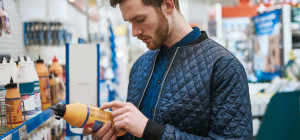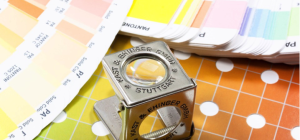 We're always being encouraged to become more eco-friendly and greener. But what exactly does this mean? Well it's another way of saying be healthy to the environment, help conserve water and energy, and prevent air and land pollution. So how can we help in our own homes? Start in the kitchen with these handy tips…
We're always being encouraged to become more eco-friendly and greener. But what exactly does this mean? Well it's another way of saying be healthy to the environment, help conserve water and energy, and prevent air and land pollution. So how can we help in our own homes? Start in the kitchen with these handy tips…
1. Upgrade Your Appliances
If you find you can't repair any of your kitchen appliances cost-effectively, you'll need to replace them. Disposing of you old items needs to be done responsibly. You may be able to pay for collection of them when your new goods arrive, or contact your local council to see if they'll pick them up and take them to the refuse centre. This ensures that any dangerous chemicals and materials are dealt with properly.
Try and look at the Energy Star ratings on new goods as this will confirm they're energy efficient. Dishwashers can use a lot less water than washing up in the sink, and small fridges can save you lots of energy. Microwave and pressure cookers are both great energy-savers too. Slow cookers will cook meals on a gentle heat for hours and are well worth investing in. Chest freezers are much more efficient than vertical styles, and when kept in a cool place are even more so.
2. Make Your Oven Energy Efficient
Whether you've got a gas or electric oven you can still make savings! With gas you can control the heat as soon as it comes on, and heat isn't wasted when the cooking is complete. The most efficient electric cookers are the ones that use induction elements, known as solar ovens, but these can be a bit more expensive if you're buying new. Electric ovens are a healthier option as they add less pollution to the atmosphere, so choose one that suits your budget and saves on materials and resources if you can.
To keep your oven in fine working order you should consider calling oven cleaning professionals in at least once a year. They'll be able to dismantle the entire oven, including the fans, and deep clean all parts in powerful solutions. Once the oven is put back together it'll look like new and your food will taste superb! A clean oven also heats up faster and cooks more efficiently.
3. Change Your Cleaning Methods
There are ranges of cleaning products readily available that don't contain any toxins which are harmful to you and your family. Plant based detergents are biodegradable, so look around for the best options. Use kitchen towels for mopping up spills - you can buy them in bulk which means less packaging. Invest in some microfibre cloths. These are perfect for attracting dust and dirt and keeping them in the fibres until you wash them out. You'll be able to use them time and time again.
Don't forget some of the old cleaning remedies your grandparents used are still some of the best! You can easily make your own cleaning products from simple store cupboard ingredients like baking soda and vinegar. Find some online recipes and create all-purpose cleaners for your whole house.
4. Buy Locally And In Bulk
Wherever possible use your local shops to buy food from. This saves on transport costs and helps your local community. If you live in a rural community use the local farmer's markets and support the area's agriculture. You could even buy your milk and eggs direct from the farm! Buying locally means your food will always be fresh and free from any preservatives and biocides that cause food to spoil quickly.
You can buy lots of groceries in bulk to avoid excess packaging. Then you can prepare meals and cook in bulk to save energy. Freeze surplus and re-heat as necessary. The art is all in the planning - this'll let you shop efficiently and feed your family for days ahead. Attempt to make home-made meals to avoid buying prepared and frozen food. If you've got outdoor space you could consider growing your own fruit and vegetables.
5. Recycle And Save On Waste
Use a bin in the kitchen to put in all your food waste-your local council may even supply you with one. Vegetable peelings, egg shells and leftovers can all go in here. Why not make your own compost? It's easy to do and then all this waste can be taken directly to your heap. If you don't have the outdoor space, make sure the bin is emptied into the proper receptacle for the council to collect from the kerb side. Try to put out as little rubbish as possible to help with the overflowing landfill site situation.
Remember to check any food purchased for the use by date and make sure you do! Buy as much fresh food that's unpackaged and don't buy more than you need. Take your own bags to pack your shopping as you'll have to pay for any plastic bags needed now. Re-use any containers that you can such as glass bottles and jars. Now you know how simple changes can make a huge difference to your budget and the planet!







